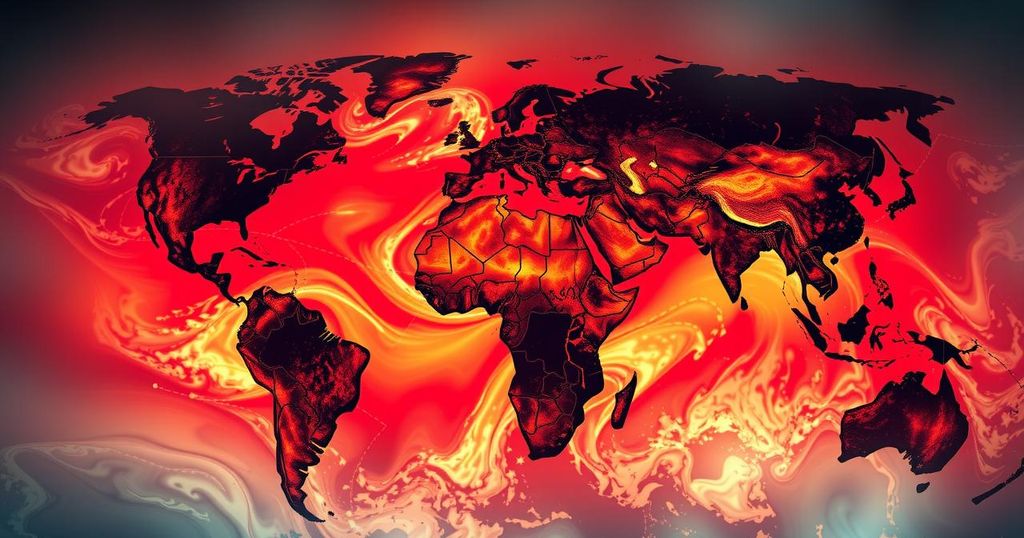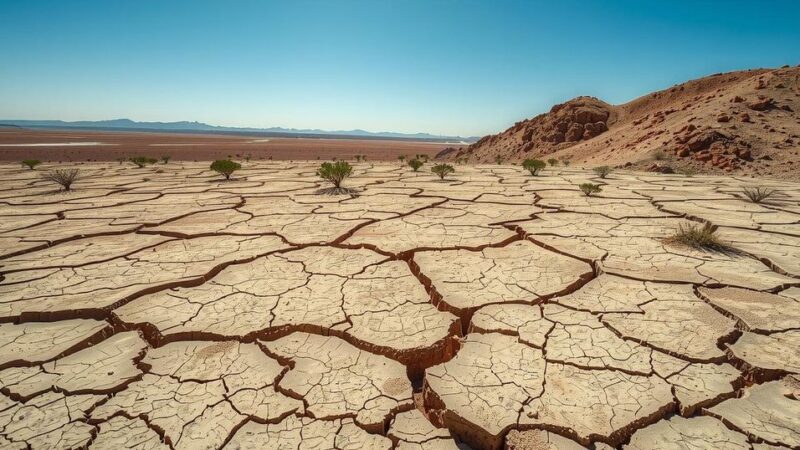Research indicates that climate change has added 41 days of dangerous heat worldwide in 2024, exacerbating extreme weather events. Scientists report that this year may be the hottest on record, affecting millions and linking climate change to significant mortality rates from heat. While El Niño contributed to some trends, climate change had a more pronounced effect. Urgent action is needed to mitigate impacts and prepare for future climate challenges.
In the year 2024, human-induced climate change has resulted in an average increase of 41 additional days of perilous heat globally. This conclusion emerges from an analysis conducted by scientists from World Weather Attribution and Climate Central, underscoring how climate change has exacerbated severe weather phenomena throughout the year. The findings reveal that 2024 may be the hottest year recorded, characterized by extreme weather events that have wreaked havoc worldwide.
Throughout the year, millions experienced severe heat conditions, particularly in regions like Northern California, Mexico, and West Africa, where already vulnerable populations faced increased risks. The relentless heat led to school closures in South and Southeast Asia, while higher temperatures forced Greece to temporarily shut the Acropolis. The researchers employed comparative temperature assessments to understand the extending heat patterns attributable to climate change.
Notably, the research indicated that the poorest nations suffered disproportionately from extreme heat, with some regions experiencing as much as 150 days of intense temperatures. Moreover, the correlation between heat waves and increased mortality rates is concerning, yet often underreported. Experts emphasize the urgent need to communicate the realities of heat-related fatalities to raise awareness effectively. The alarming trends observed this year indicate that the planet is nearing the critical warming threshold of 1.5 degrees Celsius established under the Paris Agreement.
Of the 29 extreme weather events analyzed, 26 were clearly linked to climate change. While the El Niño phenomenon contributed to some global weather patterns in 2024, the overarching influence of climate change was found to be more significant in driving these events. Scientists predict an escalation in the frequency and severity of climate extremes unless substantial measures are undertaken to reduce greenhouse gas emissions.
In light of these developments, experts stress the importance of preparedness and adaptability in mitigating climate change impacts. They advocate for proactive measures at both national and global levels to lessen the consequences of extreme weather events, emphasizing that every country holds a responsibility in combatting climate change and safeguarding vulnerable populations.
The analysis conducted by scientists from World Weather Attribution and Climate Central examines the acute effects of climate change, particularly focusing on extreme heat and its correlation with global weather extremes in 2024. The year has been marked by unprecedented temperatures and severe weather events that have impacted millions, highlighting both the immediate and long-term challenges posed by climate change. This research serves as a critical reminder of the urgent need to address human activities contributing to climate change, which has increasingly worsened weather patterns and the overall climate crisis.
The research unequivocally establishes that human-caused climate change has led to an alarming average of 41 additional days of dangerous heat in 2024, contributing to a series of severe weather events globally. With disproportionate impacts on the poorest populations, the findings illustrate the urgent need for concerted efforts in mitigating climate change. The continuing rise in temperature and extreme weather events signals the necessity of global cooperation aimed at reducing greenhouse gas emissions and enhancing adaptation strategies to protect vulnerable communities.
Original Source: abcnews.go.com






